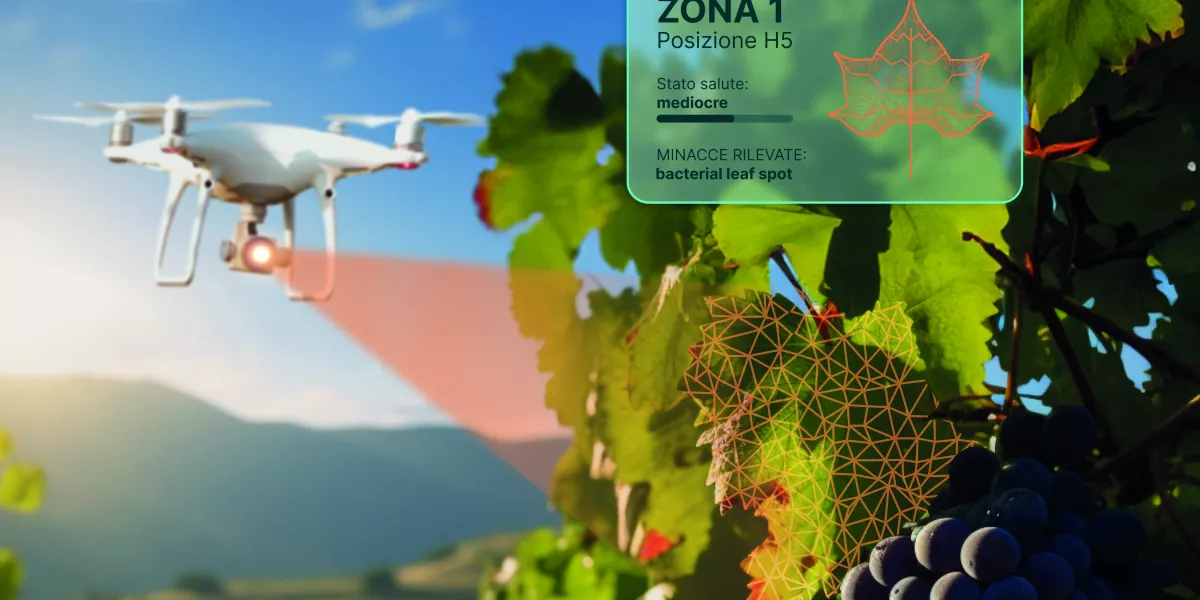VINE-AI
Intelligent vine assistant for vine health monitoring and the intelligent recognition of specific parasites; 2d and 3d reconstruction of vine field to monitor the status of the field over time; full web interface to train the ai subsystem and visualize field status

Scheda del progetto

Betacom srl

Consiglio Nazionale delle Ricerche
Linear System srl
Az. Agr. Leggero s.s.a.




VINE-AI aims to implement a cloud-based web platform for monitoring the health of grapevines. The system includes a subsystem of artificial intelligence trained to recognise abiotic stresses (e.g., water or nutrient deficiencies) in the vines and the presence of specific pests through the analysis of a set of sample leaves. The training process for the AI will be built around a simple web interface and an automated system, through which a dynamic machine learning process will be trained.
Contacts:
Gaston Ezequiel Di Filippo
g.difilippo@betacom.it
VINE-AI aims to effectively integrate existing technologies, such as image collection via drones and the use of multispectral and hyperspectral sensors, with automated image analysis and the development of machine learning-based algorithms for characterising the physiological state of plants. Initially focused on grapevines, this approach is extendable to other fruit species.
The innovation of VINE-AI lies in the development of an advanced prototype for the automation of monitoring and analysis of vine health. This system integrates artificial intelligence technologies for the precise and timely detection of vital plant parameters. Data visualisation occurs through dashboards in both 2D and 3D formats, allowing for in-depth analysis at the individual vine level, thereby providing farmers with a comprehensive and detailed overview of vineyard conditions.
The VINE AI project primarily aims to benefit growers by providing significant improvements in crop monitoring and management at lower costs, promoting more sustainable agriculture. The monitoring service will reduce the use of plant protection treatments and optimise irrigation, leading to lower costs and reduced environmental impact. Wineries will be able to monitor grape quality, while public authorities will be able to manage phytosanitary emergencies. In the future, VINE AI could be extended to other tree crops, thereby expanding its impact.
